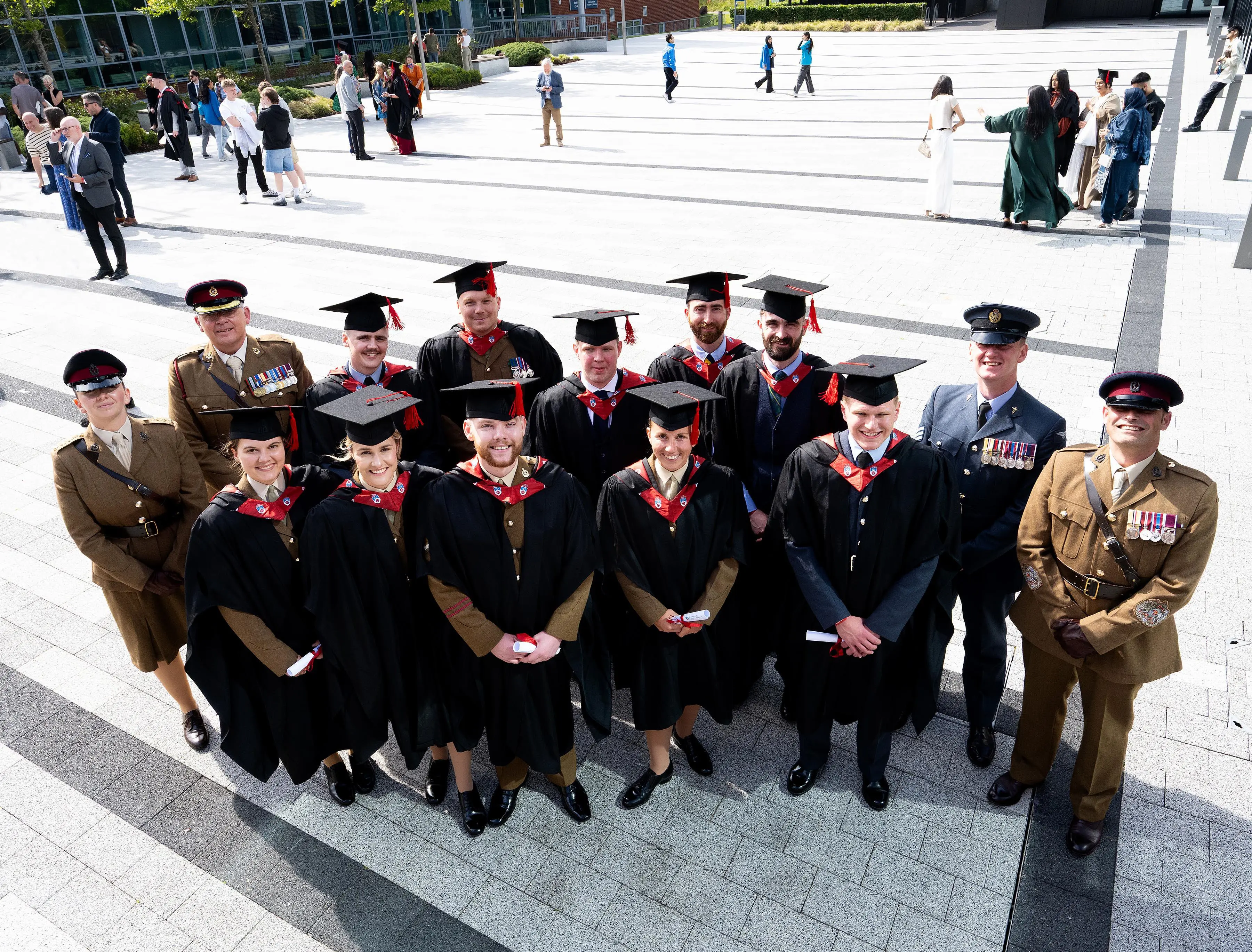A University of Central Lancashire* degree course which has trained members of the military to become paramedics has celebrated its first graduates.
Five staff from the Royal Air Force and 12 members of the Army have been deployed in Preston to complete a three-year BSc (Hons) Paramedic Science course.
The new paramedics will now take their skills into eight NHS Trusts around the country where they will work on the frontline for two years before heading back to the armed forces for a minimum of three years.
Donna Ryan, the cohort’s lead academic, said: “I’m immensely proud of our first cohort and they have all graduated with fantastic grades.
“They came to us as combat medics, who have experience in treating service personnel, but with little or no experience of civilian practice. This programme has given them insight into the health and wellbeing needs of other demographics, not typically seen in the military which will better prepare them to be more of an all-rounded clinician.”
This programme has given them insight into the health and wellbeing needs of other demographics, not typically seen in the military which will better prepare them to be more of an all-rounded clinician– Donna Ryan, the cohort’s lead academic,
In September 2021, the Health and Care Professions Council, which regulates the industry, announced all paramedics must have a degree qualification. This led the military to pursue validated course at higher educational institutions, with the University* securing the tender in 2022.
An Army medic, who wanted to build on their military medical training and gain a formal qualification that would allow them to broaden their clinical practice, commented: “Over the three years, I’ve developed a much deeper understanding of clinical decision-making, patient assessment, and evidence-based practice, areas that weren’t the main focus in previous training. The academic grounding and placement experience have been invaluable.
“After competing my newly qualified paramedic programme, I’ll return to the military with enhanced clinical competence, improved communication skills, and a broader perspective on pre-hospital care, all of which will strengthen the medical capability on operations and in training environments.”
After competing my newly qualified paramedic programme, I’ll return to the military with enhanced clinical competence, improved communication skills, and a broader perspective on pre-hospital care, all of which will strengthen the medical capability on operations and in training environments– An army paramedic
One of RAF students, who applied for the course because they wanted more clinical opportunities and found themselves wanting to deepen their knowledge, added: “The broad spectrum of skills, theory and experience I have accrued throughout the degree and associated placement blocks has provided a solid foundation for my practice, and opened up an entirely new career trajectory.
“Now that I’ve finished my degree, I’m spending the next two years as an HCPC registered paramedic delivering full-time, frontline prehospital care within an NHS Ambulance Service Trust. This new chapter will enable me to consolidate my learning, develop a breadth of experience and advance my clinical acumen in preparation for my full-time return to the military. As a military paramedic, I will undertake specialist training and deploy globally to deliver operational and humanitarian care - at a moments’ notice.”
